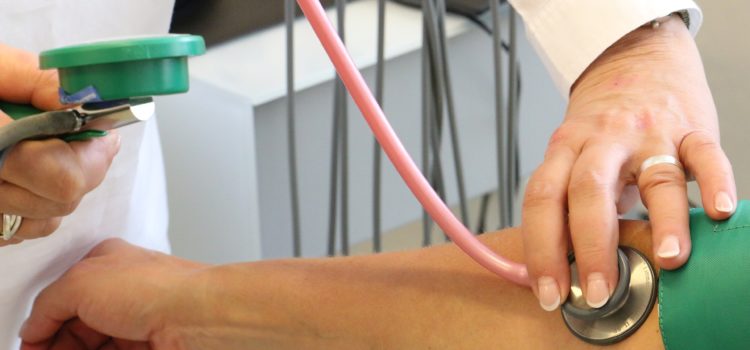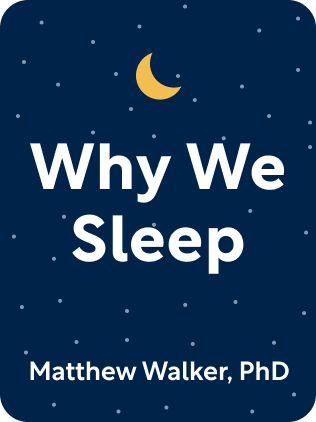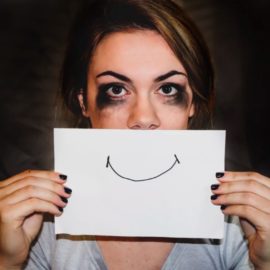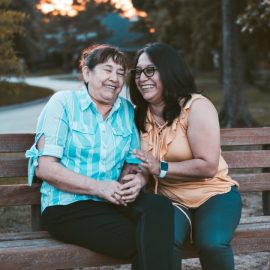

This article is an excerpt from the Shortform summary of "Why We Sleep" by Matthew Walker. Shortform has the world's best summaries of books you should be reading.
Like this article? Sign up for a free trial here .
Are lack of sleep and heart disease linked? Can sleep deprivation cause a heart attack?
Sleep deprivation has serious effects on the body, and even leads to death. But chronic lack of sleep and heart disease are also linked. Lack of sleep and heart disease can stem from the body’s weakened state and inability to function at its highest potential
How Sleep Deprivation Harms the Body
How are lack of sleep and heart disease connected? Sleep deprivation harms the body. In addition to the damage it causes to the brain, sleep deprivation disrupts the normal function of many physiological processes, likely contributing to chronic diseases. In this chapter we’ll cover a bevy of health issues associated with sleep deprivation.
At a high level, sleep deprivation of even just 1-2 hours triggers the sympathetic nervous system (fight or flight response) and disrupts hormonal balances. This also implies that sleep is necessary for the normal maintenance of physiology.
Shortform Caveat
Many of the population studies cited in Why We Sleep are correlational – e.g. people who sleep less are more likely to have heart disease, after controlling for many other factors. But the causation is unclear – some other factors that predispose people to get heart disease (like a high baseline level of stress) could also reduce sleep. Remember this when researching lack of sleep and heart disease.
To address this, the experimental studies cited attempt to link lack of sleep to a middle physiological state, which itself is causative for the disease. For instance, lack of sleep increases blood pressure, which the medical consensus believes is causative for heart disease.
Ideally, the “smoking gun” experiment would be to randomize people into normal-sleep and low-sleep groups for years, then observe the rate of disease. However, this is impractical (it’s hard to run very long studies like this and impossible to double-blind) and likely unethical (if low sleep is already believed to cause severe disease).
Diseases and Sleep Deprivation
Lack of sleep and heart problems are a possible risk as you get older. In addition to other health problems, heart diseases can be serious.
Heart Disease
Sleep deprivation has a number of effects related to cardiovascular disease:
- It activates the sympathetic nervous system, leading to
- Increased heart rate
- Increased vasoconstriction -> increased blood pressure
- Increased cortisol (stress hormone)
- Increased atherosclerosis (esp of coronary arteries)
- Through hormone signaling, it decreases HDL (good cholesterol) and growth hormone (promotes recovery of blood vessel endothelium)
A population study showed that shorter sleep was associated with a 45% increased risk of developing heart disease.
An interesting finding: daylight savings time is a natural sleep experiment that typically increases or decreases sleep by 1 hour. When the clock moves forward and the population gets 1 less hour of sleep, there is a significant spike in heart attacks and number of traffic accidents.
Adulthood/Old Age
Sleep quality starts deteriorating in the late 20s, with deep NREM sleep becoming impaired in length and power. In your late 40s, you’ll have lost 70% of deep sleep as a teenager; by 70, you’ll have lost 90% of deep sleep. Unfortunately, less NREM sleep worsens the ability to cement new memories in older people. Keep this in mind when thinking about lack of sleep and heart disease, since heart disease risk also increases with age.
You often hear of the elderly sleeping little at night, so the natural conclusion is that the elderly just need less sleep. But this could be a myth. The elderly might be sleeping less because they’re unable to sleep for as long. This means they could still benefit from more sleep.
Lack of sleep heart problems can get worse with age. Seniors have three things going against them: 1) they sleep less, 2) they have less efficient sleep, and 3) they want to sleep earlier. This is caused by:
- Degeneration of the mid-frontal cortex that generates sleep
- Circadian rhythm shifting to earlier times
- Weakened bladders causing night interruptions
Exacerbating this are:
- We’re generally unable to determine our sleep quality after sleeping. So when seniors sleep poorly and feel unhealthy, they don’t realize they need to improve their sleep quality. They chalk it up to insomnia.
- Because the elderly sleep poorly, they feel tired during the day, and doze off in the early evening. Unfortunately, this reduces the adenosine sleep pressure at night, which causes them to have trouble falling asleep later. Then, their early circadian rhythm wakes them up before they can get a full night’s rest. This causes a vicious cycle of poor sleep.
All this causes lower sleep efficiency – people in their 70s have 80% sleep efficiency, meaning they stay awake in bed for 1.5 hours when trying to sleep 8. This can all be a contributing factor to lack of sleep heart problems.
There are a few ways to get around this:
- Melatonin helps strengthen the desire to sleep in elderly people. It reduces time to falling asleep and improves reported sleep quality.
- Seniors who want to push their circadian rhythm back should get bright-light exposure in the late afternoon, not in the mornings.
Lack of sleep and heart disease can be scary to think about. You can improve your overall health, not just related to lack of sleep and heart disease, by practicing good sleep hygiene.

———End of Preview———
Like what you just read? Read the rest of the world's best summary of Matthew Walker's "Why We Sleep" at Shortform .
Here's what you'll find in our full Why We Sleep summary :
- Why you need way more sleep than you're currently getting
- How your brain rejuvenates itself during sleep, and why nothing can substitute for sleep
- The 11-item checklist to get more restful sleep today






